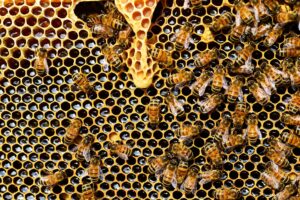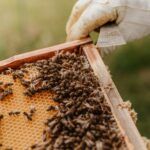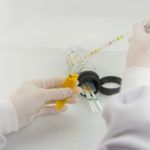 About the mite
About the mite
Honeybee populations around the world are experiencing massive losses. This is primarily the result of varroosis, a disease caused by the varroa mite that, if it doesn’t kill the bee directly, causes other diseases that do. In fact, the varroa mite is responsible for killing 85 % of all bee colonies. Considering the essential role that bees play in plant pollination, if left unchecked, the varroa mite could wreak havoc on the human food chain.
It is known that the varroa mite is particularly sensitive to increased temperatures. In fact, by increasing the temperature only slightly, the mite is no longer able to reproduce. While long-term exposure to 38 degrees Celsius will cause the mite to suffer irreversible damage, raise the heat only slightly to 40 degrees Celsius and the mite will die. Although this increase in heat has catastrophic consequences on the varroa mite, it has little to no effect on honeybees, making it an ideal method for controlling varroosis.
Although there are methods for self-pollinating plants, the quality and effectiveness are a far cry from that provided by natural pollination. Thus, many beekeepers use chemicals to control the varroa mite. Unfortunately, many of these products are expensive, have limited effect, and could pose serious health risks to humans. Now, thanks to the efforts of the EU-funded WarmHive project, there’s a new way to fight varroosis and save honeybees: thermotherapy.
How does it work?
Unlike the thermotherapy-based beehives that have been on the market for decades, the WarmHive is the first to offer a fully integrated solution that is so intuitive even amateur beekeepers can use it. The unique design integrates all the required hardware into a single roof structure that can be placed on top of any standard beehive. As the system runs completely on solar energy, there is no need for beekeepers to monitor electricity flow. Instead, they can simply attach the WarmHive roof to a beehive and forget about it.
Results
According to Bereziewicz, —ounder and WarmHive project coordinator—, the WarmHive solution has been shown to kill 100 % of mite populations. It also eliminates the need to use chemicals, which can pose a risk to the bees, the beekeeper, and the end consumer. As honeybee populations become stronger, natural pollination will increase to pre-varroa mite levels. As a result, the quality of such end products as honey will increase by up to 50 %, the costs of honey will decrease, and beekeepers will see better profit margins.
More information
Infography Ten Facts about Bees in the EU
Environment and Research and Innovation Sections







Leave a Reply